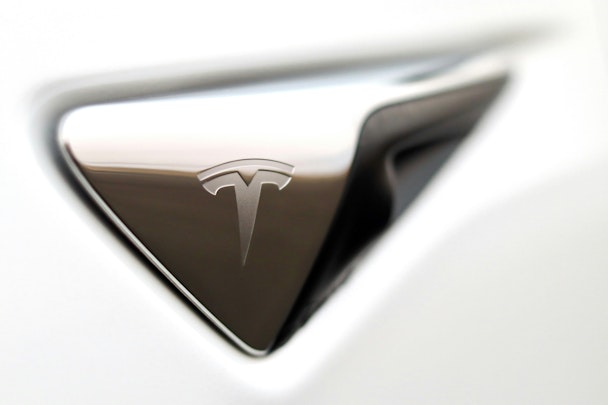Advocates over ads? What Tesla and GoPro can teach B2B marketers about brand advocacy
B2B can learn plenty from B2C about brand advocacy, says Jamie Bailey at Ledger Bennett. Turn your customers into sellers for brand gold – just look at Tesla and GoPro.

Is Tesla's secret all about brand advocacy? / Manny Becerra via Unsplash
I can’t remember the last time I saw a Tesla ad. I don’t think I’ve ever seen one. But I see Teslas everywhere.
This, in part, is intentional; the company only started advertising last year. Before that, founder Elon Musk insisted that there was no need for ads as demand for Teslas outstripped supply. Which begs the question: how did Tesla drum up all that demand?
If someone asks me to think of five different car brands, you can bet Tesla will be one of the first that comes to mind (though I should perhaps point out at this stage that I don’t drive a Tesla and this is not a Tesla ad).
But brand advocacy is the single most potent selling tool there is. When your customers become brand advocates, they’ll literally sell your products for you (no, we aren’t talking about a pyramid scheme).
And while leading B2C brands have perfected the process of turning buyers into brand advocates, B2B lags behind.
Let’s look at how GoPro and Tesla have nailed the brand advocacy challenge — and see how you can, too.
Advertisement
Selling excitement, not cameras
What makes a GoPro different from a conventional camera? It’s designed to capture immersive, personal experiences, acting as an extension of your body. It’s all about the user.
So, GoPro made themselves all about their customers. How? Firstly by going big with their online community. GoPro is super engaged with its network across its social channels, nurturing and building relationships through idea-sharing, problem-solving, and highlighting great content made by customers.
And secondly, by embodying the ‘show don’t tell’ attitude. GoPro doesn’t need to run ads telling you what sets their gear apart. They show you by promoting user-generated content. ‘Our cameras can let you capture exciting events‘ is far less compelling than ‘watch this video of a GoPro customer mountain-biking at 100 miles an hour.‘
Every brand in existence says its customers are valued. GoPro shows it. And this simple truth has helped them build an army.
Advertisement
Tesla: from 0 to 100 in 16 years
It takes a looooooooooot of effort to build brand equity in the automotive industry. Some of the greatest ads of all time promoted our four-wheeled friends.
So how on earth did Tesla compete against brands that had existed for decades?
By figuring out the kind of people who would buy their product – and making them feel special, alongside some hefty thought leadership work and the odd publicity stunt.
In 2008 – merely 16 years ago – the first Tesla Roadster hit our, well, roads. It was the first highway-legal, serial-production all-electric car using lithium-ion battery cells.
And, because it was different, it attracted trendsetters. Trendsetters are gold dust because, as their name suggests, they start trends by influencing others to follow suit. An innovative product, combined with Tesla’s work to cement themselves as trailblazers, sparked a revolution. In a very short time, people were thinking of themselves as ‘the kind of person who would drive a Tesla‘ – and the sales followed.
But Tesla didn’t just rely on the natural pulling power of trendsetters, they incentivized them. By introducing a referral program, buyers were engaged after the sale. This deepened their relationship with the brand and encouraged them to spread positive word-of-mouth.
Suggested newsletters for you
Buyers are great, brand advocates are better
Tesla customers probably wouldn’t refer friends, family, and colleagues if the car was crap. And GoPro wouldn’t have built a dedicated community if their camera footage came out more blurry than a streak of mud.
You have to start with a great product. And then you have to show the right people how your great product solves their problem. That’s how you get buyers. For many B2B marketers, the journey ends there. But not us.
Here’s what we’ve learned at Ledger Bennet from B2C about brand advocacy. You’ve got to engage buyers and users of your products after the sale. By doing this, you’ll be able to build deeper, more meaningful relationships.
But that’s not all, you’ll also be able to learn how to improve your products and services, from the people who use them the most.
If you get those bits right, you’ll find gold. Or, as we call them: ‘forever customers.‘ That’s what happens when buyers become brand advocates. Always subscribing to your next release. Buying into the thing that makes you, you. Sharing your story with everyone they know.
And that translates to customer lifetime value.
Content by The Drum Network member:

Ledger Bennett
We’re Ledger Bennett — a B2B marketing agency and part of the Havas Media Network. We don’t just create campaigns that lead to MQLs, we develop strategies...
Find out more
